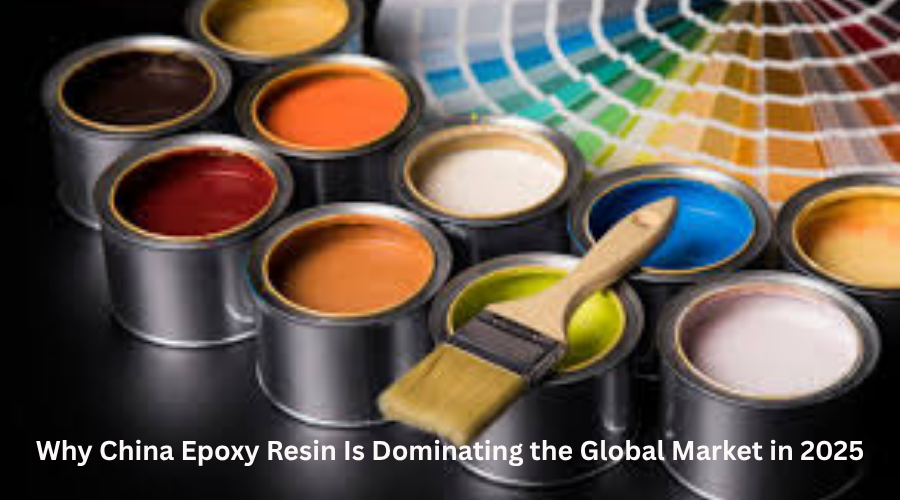How to Choose a Reliable Wholesale Epoxy Resin Supplier for Your Business?
- qinglongdatech
- Aug 15, 2025
- 4 min read

In the competitive world of manufacturing, crafts, construction, and automotive applications, epoxy resin plays a vital role. Whether you’re producing durable coatings, crafting furniture, or creating industrial adhesives, choosing the right supplier is a decision that can directly impact the quality of your final product. Selecting a trustworthy wholesale epoxy resin supplier ensures you receive consistent, high-grade materials at a fair price — and it’s an essential step in keeping your business running smoothly. But with so many options on the market, how do you identify the right partner for your needs? Let’s break it down.
Why Choosing the Right Supplier Matters
Think of your supplier as more than just a vendor — they’re a key partner in your business success. A reliable epoxy resin source means:
Consistent quality that keeps your products at a professional standard.
Reliable delivery times to avoid costly production delays.
Fair pricing that allows you to maintain healthy profit margins.
Technical support in case you need product guidance or troubleshooting.
Choosing the wrong vendor, on the other hand, can result in poor-quality resin, delivery delays, hidden costs, and damage to your brand’s reputation.
Key Elements to Evaluate When Choosing a Supplier Of Epoxy Resin
1. Product Quality and Consistency
The first and most important factor is resin quality. Poor-quality epoxy can lead to yellowing, brittle finishes, and bonding failures. Before committing, ask for samples and test them in your own production process. Look for:
Clarity and color stability
Proper curing time
Strong adhesion and chemical resistance
Low odor and safe handling properties
2. Supplier Reputation
Research the supplier’s track record. Look for online reviews, testimonials, and case studies. Ask for references from other clients in your industry. The longer a supplier has been in business and the more positive feedback they have, the more likely they are to deliver as promised.
3. Certifications and Compliance
Ensure the supplier follows international quality standards such as ISO certification, REACH compliance, or FDA approvals (for food-contact applications). These credentials show they take manufacturing and safety seriously.
4. Pricing Transparency
Price matters, but the cheapest is not always best. Instead of focusing solely on the lowest rate, compare pricing along with quality, shipping terms, and payment flexibility. A reputable supplier will provide a detailed explanation of costs, including delivery and bulk discounts.

5. Bulk Order Capacity and Lead Times
A strong wholesale supplier should be able to handle large orders consistently without delays. Check their production capacity and average lead times to ensure they can scale with your business growth.
6. Customer Support and Communication
Good communication can save you countless headaches. Look for suppliers who respond quickly and professionally to inquiries, provide technical support, and offer guidance on product usage.
7. Sustainability Practices
As eco-consciousness grows, customers are paying attention to where and how products are made. If sustainability matters to your brand, look for suppliers using low-VOC formulations and eco-friendly production processes.
Red Flags to Watch Out For
While evaluating potential suppliers, watch for these warning signs:
Unrealistically low prices (could mean compromised quality)
Lack of documentation (no TDS or SDS provided)
Poor communication or slow responses
No verifiable business address or references
Steps to Finding the Best Supplier
Make a shortlist – Identify 5–10 potential suppliers through online searches, trade shows, or industry recommendations.
Request samples – Test them for clarity, adhesion, cure time, and strength.
Check compliance – Verify certifications and product safety.
Compare offers – Consider both quality and cost.
Negotiate terms – Discuss bulk pricing, shipping methods, and return policies.
Start small – Place an initial order to test reliability before committing long-term.
Domestic vs. Overseas Suppliers: Pros and Cons
Both domestic and overseas suppliers have benefits:
Domestic Suppliers
Faster shipping
Easier communication
Better consumer protection laws
Overseas Suppliers
Lower production costs
Wider variety of products
Potential for higher profit margins
Your decision will depend on budget, urgency, and specific product requirements.
Building a Long-Term Supplier Relationship
Once you’ve found a reliable epoxy resin supplier, treat the relationship like a partnership:
Pay on time to maintain trust.
Communicate clearly about your needs and timelines.
Provide feedback on product performance.
Order regularly to secure favorable terms and priority service.
A strong relationship can lead to lower prices, pre-release access, and preferential treatment in times of high demand.
Conclusion
Choosing the right epoxy resin supplier is not a decision to rush. By focusing on quality, reliability, certifications, pricing transparency, and communication, you can secure a partner that supports your business's sustained long term growth. Remember, the most affordable option is rarely the best — instead, prioritize consistency, trust, and proven performance. When you invest the time in finding the right supplier, you’re investing in the success and reputation of your entire operation.
FAQs
1. What is the best way to test epoxy resin quality before buying in bulk?
Request samples and evaluate them for clarity, curing time, adhesion, and resistance to yellowing. Always test in conditions similar to your production process.
2. How can I ensure my supplier is legitimate?
Check for verifiable business credentials, certifications, positive reviews, and a clear physical address. Ask for references from other customers.
3. Is it better to choose a local or overseas supplier?
It depends on your priorities. Local suppliers offer faster delivery and easier communication, while overseas suppliers often provide lower costs and more variety.
4. What certifications should I look for in an epoxy resin supplier?
ISO, REACH compliance, and FDA approval (if applicable) are strong indicators of quality and safety.
5. Can I negotiate prices with a wholesale supplier?
Yes. Most wholesale suppliers are open to negotiation, especially if you commit to regular, high-volume purchases.







Comments